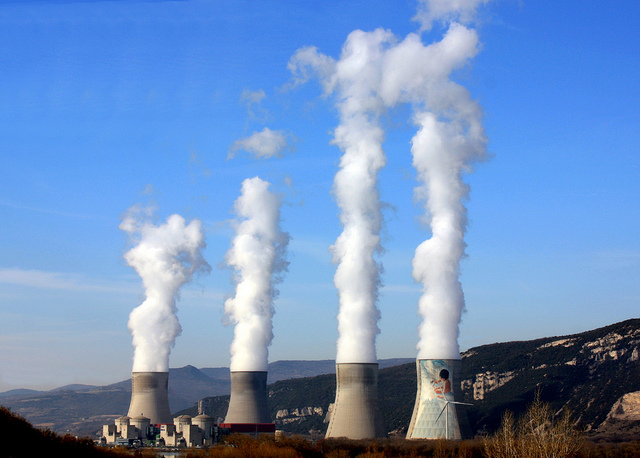In the East Asian region, there are four players with established nuclear energy programs – China, Japan, South Korea and Taiwan. Each of these face unique challenges with regard to spent fuel management.
In South Korea, the government wants to pursue a form of ‘reprocessing’ spent fuel to reduce its growing volume, despite the fact that Seoul pledged not to conduct reprocessing in a 1992 agreement with North Korea. Reprocessing uses an industrial process to recycle the energy embedded in the plutonium in spent nuclear fuel. This process can be used to both provide additional fuel for nuclear plants or fissile material for nuclear weapons. Seoul’s stance has sounded alarm bells in Washington, which has shut down previous attempts by South Korea to reprocess. The US does not want to provide additional excuses for North Korea to further its nuclear ambitions.
Reprocessing efforts in China, the region’s nuclear-weapon state, may be of lesser nonproliferation concern because it already has stockpiled fissile material. However, military officials, diplomats, and nonproliferation experts have long worried that Japan’s reprocessing program and its tons of separated plutonium represent a significant proliferation danger. Taiwanese authorities are not actively considering reprocessing, which would likely garner little support in Washington or elsewhere. However, Taiwan, which flirted with a weapons program in the past, has still not devised a solution to its spent fuel problem.
The rush to reprocess spent fuel and develop a ‘closed’ nuclear fuel cycle in some countries in East Asia is occurring despite evidence that the process is far more costly than the ‘once-through’ nuclear fuel cycle, which involves ultimately storing the spent fuel in a permanent repository. And it is occurring despite international efforts to prevent the spread of reprocessing to new countries.
Even more notable with regard to current and future disposition of spent nuclear fuel is the fact that 33 more reactors are in construction in these four countries alone — making up about 50 per cent of the world’s reactors under construction.
Despite the fact that disposition of spent fuel is a common problem, there have been few serious attempts at shared solutions. To be sure, the major nuclear energy players in the region will have to develop their own plans for addressing their stockpiles of spent fuel, and these will have to be tailored to the particular needs of each domestic program. But the possibility exists for key actors in the region to cooperate and collaborate in addressing accumulated spent fuel to minimise proliferation dangers, technical obstacles, and economic costs.
Many different kinds of multilateral cooperation on the back-end of the fuel cycle could be envisioned with different levels of domestic political and economic costs, proliferation risks, and technology challenges.
Recent East Asian multilateral efforts have focused less on finding storage sites than on sharing research and shaping policy into advanced recycling (reprocessing) technologies, associated reactors, and related questions of proliferation resistance. These have included the US initiated Global Nuclear Energy Partnership (GNEP), the Generation IV International Forum (GIF), and the IAEA’s International Project on Innovative Nuclear Reactors and Fuel Cycles (INPRO).
A new regional forum for more consistently and openly discussing possible options for dealing with regional spent fuel stockpiles needs to be established. Many regional players are facing similar back end challenges and some of their nuclear authorities are proposing similar solutions; sharing of best practices and lessons learned would be beneficial. Numerous smaller Asian economies are contemplating nuclear power development (such as Vietnam and Indonesia), yet there is little regional discussion or coordination of such issues.
Further study should be undertaken on the issue of pyprocessing – an alternative process which not only burns waste, but will also generate electricity in the process – in order to evaluate the technical, economic, and nonproliferation benefits. The US, as a key actor in the region, should actively encourage such efforts. Along with the newly established Blue-Ribbon Commission, the US should consider what might be done about US origin spent fuel overseas, with that in South Korea and Taiwan being given top priority.
Absence of greater attention, urgency, and coordination among the region’s players, could lead the developing crisis in spent fuel to join the North Korean crisis on the front page of the world’s newspapers.
Miles Pomper and Stephanie Lieggi are senior research associates, Ferenc Dalnoki-Veress is a research scientist, and Lawrence Scheinman is a distinguished professor at the James Martin Center for Nonproliferation Studies (CNS) of the Monterey Institute of International Studies (MIIS).
This article is an edited excerpt of the original article published here at the Asia Pacific Journal: Japan Focus and republished here at the Nautilus Institute for Security and Sustainability.

